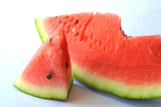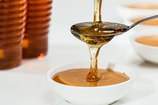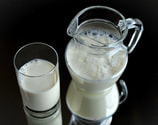FODMAPs & the Low FODMAP Diet
FODMAPS (Fermentable Oligo-saccharides, Di-saccharides, Mono-saccharides and Polyols) are sugars that are poorly digested and absorbed in the gut by all people. In the small intestine, some attract water and in the large intestine some are food for our residential gut microorganisms. For most people these processes don’t cause any issues, and farting is a good sign of fermentation. But for people with gut sensitivity, they can cause uncomfortable and difficult symptoms like stomach discomfort, pain and /or bloating, excessive gas, constipation and diarrhoea.
|
Oligosaccharides are found in foods such as rye, wheat (breads, pasta and cereal), garlic, onions and legumes. Disaccharides are found in milks, soft cheese, yoghurt and ice cream. Mono-saccharides are in some fruits (apples, pears, watermelon, many dried fruits), honey and high fructose corn syrup (sweetener). Polyols are found in some fruits (apples, pears, blackberries and stoned fruit), mushrooms, cauliflower and artificial sweeteners.
The ‘Low FODMAPs’ diet has become a common recommendation by GPs and Gastroenterologists for Irritable Bowel Syndrome (IBS) management. And can additionally be an extremely useful short-term protocol for people experiencing IBS symptoms with Inflammatory Bowel Disease and Endometriosis. It is recommended to trial this diet for 3-6 weeks under experienced practitioner guidelines to see if symptoms subside. The food challenge process then systematically introduces food to identify which cause discomfort. It is then important to follow an appropriate method of reintroducing foods back into your normal diet. This is done as a gradual process to find your personal tolerance level, while addressing known or suspected causes for your symptoms - an experienced practitioner will be able to investigate and discuss this with you. Note: The low FODMAP diet is not recommended long-term – it is simply an assessment tool. It is best for your long-term gut health and IBS management to consider and address the root cause. Avoiding nutritious foods unnecessary is not recommended. Read here for information on common causes of Irritable Bowel Syndrome |





